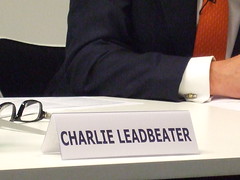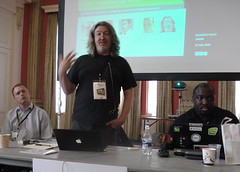[As ever you can read this on the BBC News website – and it seems the story is already moving on, with reports that press access to the net will be filtered by the Chinese]
I won’t be going to Beijing for the Olympic Games next month, and in fact I probably won’t even be going to London in 2012 when it’s our turn to host the festivities.
I don’t watch athletics or any of the other events that will be taking place. I don’t support a football team either, or have much interest in cricket despite being an English male. Sport just doesn’t excite me at all.
But even though I don’t care which country wins most gold medals or whether world records are broken for running, jumping or throwing odd-shaped objects, I’ll be watching what goes on around the Olympic Games with keen interest, because this world-wide sporting event offers a fascinating perspective on the state of the internet today.





